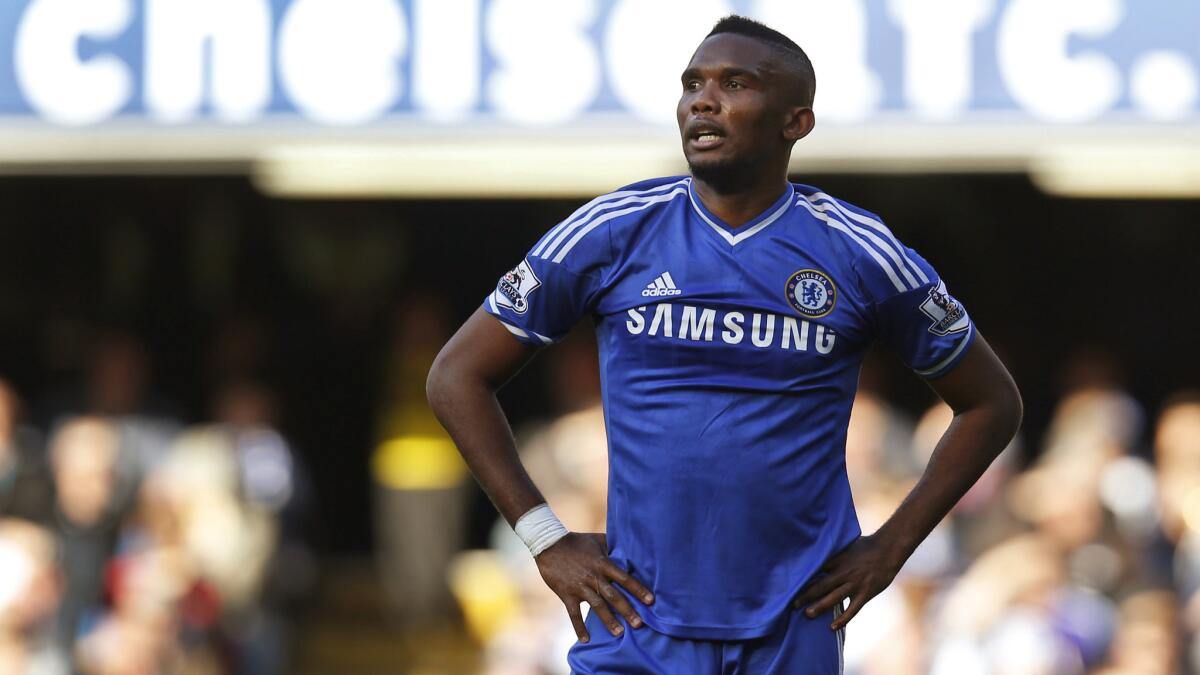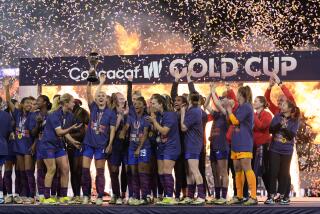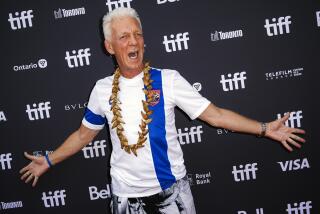African teams look to make progress at World Cup

FIFA made an extraordinary decision when it awarded the last World Cup to South Africa, welcoming a nation and a continent to stand center stage under the hottest spotlight in international sports.
And despite a few glitches, the 2010 tournament was a success. But will the continent enjoy the same kind of World Cup bounce as other recent hosts?
------------
For the Record
World Cup: An article in the May 25 Sports section about African teams’ aspirations in the World Cup referred to the previous soccer tournament as taking place in 2012. The last World Cup was in 2010.
------------
When FIFA brought the World Cup to the U.S. in 1994, it did so on the condition that a first-division league be formed in the tournament’s aftermath. Less than two decades later, Major League Soccer has grown into one of the most recognized leagues in the world.
In 2002, Japan and South Korea became the first Asian nations to play host to a World Cup when they shared the tournament. And that experience changed both countries’ soccer programs: South Korea, which had never won a World Cup game, made it to the semifinals that year and to the knockout stage in 2010 and Japan, previously winless in World Cup play, advanced out of the group stage in two of the last three tournaments.
Whether Africa can expect a similar legacy could be known next month when Cameroon, Ghana, Algeria, Ivory Coast and Nigeria begin play in Brazil. And Cameroon captain Samuel Eto’o is hopeful.
“African teams are likely going to do well,” he told the Confederation of African Football (CAF) website. “In all major European championships there are always African players that play major roles. Africa will have its say in Brazil.”
There’s still much to do to make that prediction a reality, though. Lack of resources, national team player pools that are scattered across the globe, poorly managed national federations and corruption have played a part in stunting soccer’s growth in Africa. And those problems won’t be solved overnight.
Pele, the former Brazilian great, once insisted that “an African nation will win the World Cup before the year 2000.” We are still waiting for an African team to get past the quarterfinals.
But progress is being made. Consider that, for much of its history, the World Cup was more of a TV show in Africa than it was a competition anyone there had a reasonable hope of participating in.
In the first eight World Cups, only one African country — Egypt — had taken part. It wasn’t until 1978 that an African team won a World Cup game and it took expansions in the field, to 24 teams in 1982 and to 32 in 1998, for more than one African country to be invited to the tournament in the same year.
Once given that chance, though, African teams seized it, sending two teams — Senegal in 2002 and Ghana in 2010 — to the quarterfinals. Only the federations representing Europe and South America have sent that many teams to the quarterfinals over the last three World Cups.
Yet, no African team has advanced beyond that. And Africa has never had more than one team advance out of group play in the same tournament.
The problem, says former England and Liverpool player John Barnes, isn’t one of talent but of style. The list of African players who have starred for major European clubs is long, starting with Manchester City’s Yaya Toure, a three-time African payer of the year from Ivory Coast, and Ivory Coast teammate Didier Drogba, who almost single-handedly won a Champions League title for Chelsea two years ago.
But with Africa’s top players participating in leagues all over Europe, trying to build cohesion in short national team training camps can be a challenge for African teams.
“Africans must show the same desire and discipline when playing for their country that do when playing for European clubs,” Barnes told the South African-based SuperSport channel.
Bosnian Vahid Halilhodzic, who will coach Algeria in Brazil, agrees, saying many African players, eager to escape poverty at home by winning jobs with rich European clubs, put individual goals above team success.
“They want to assert themselves and win a contract in Europe, so teamwork suffers,” he told Agence France-Presse. “That is why African football is unable to realize its full potential.”
But Eto’o, a former African player of the year, and George Weah, a onetime Liberia star and the only African to be selected the world’s top player, say poorly run and poorly financed national federations are equally to blame.
“The only problem in Africa is our leaders, who do not respect us,” Eto’o said. “Until we are respected, others will never have any consideration for us.”
Added Weah: “Former players govern European football while those without passion or knowledge of the game rule in Africa.”
That may soon change. In the wake of the South Africa World Cup, in which six countries from the continent combined to win only four of 20 games, a dialogue over how to get better has begun. The comments by Eto’o attacking federation officials appeared on the federation’s website, for example. And some of those officials are now listening, scratching their heads and looking for solutions as well.
Maybe that will be the legacy of 2010.
“I don’t see why Africa cannot have one of two of our representatives reach the semifinals or even the final,” said Issa Hayatou of Cameroon, the federation president.







